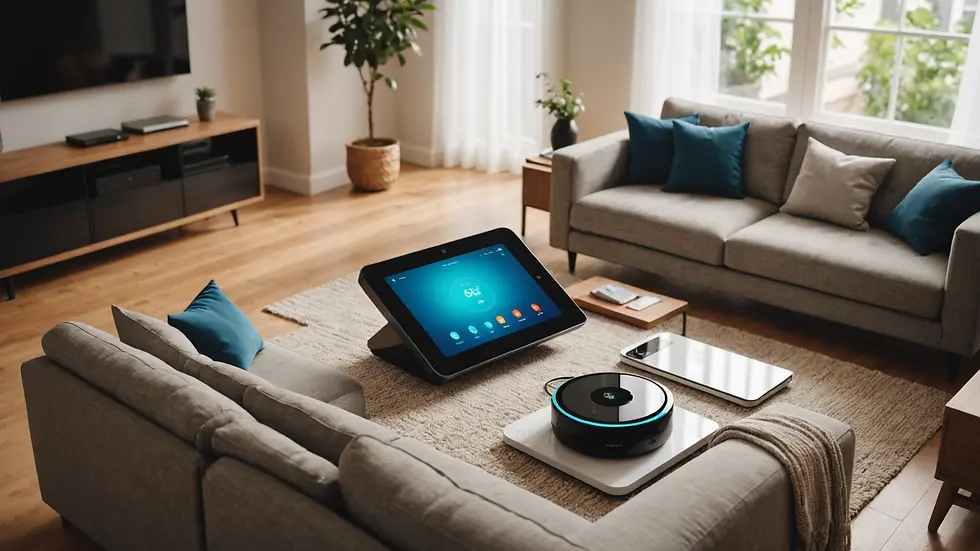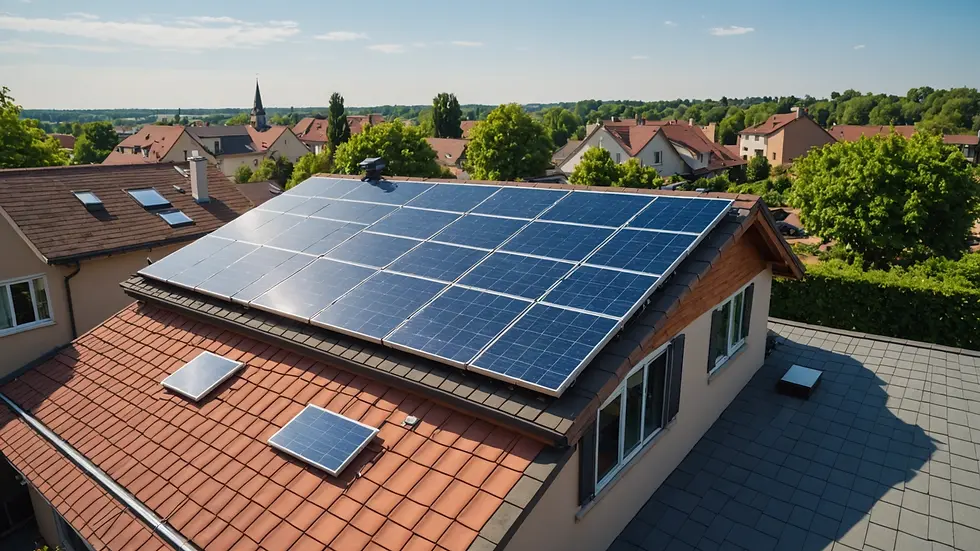Voice Assistants and Beyond: What's Next for Smart Homes?
- gary audie
- Jan 6
- 4 min read
Updated: Jan 13
The future of home automation is filled with exciting possibilities, largely due to the rise of voice assistants. These technological marvels have changed the way we interact with our homes. With just a simple command, we can control everything from our lighting and heating to our music playlists. Voice assistants have set the stage for a fully interconnected smart home ecosystem. So, what is next on this journey? Let’s explore the trends that are set to redefine our living spaces.
The Rise of Interconnected Devices
As technology improves, an increasing number of devices can now be integrated into your home. The smart home sector is advancing quickly, giving rise to gadgets that communicate with each other as well as function independently. Picture a scenario where your thermostat detects your car pulling into the driveway, automatically adjusting the indoor temperature to a comfortable setting while your smart lights illuminate the entryway.
This interconnected system offers automation tailored to your lifestyle. For instance, homes equipped with IoT devices can optimize energy usage, leading to potential savings of up to 30% on electricity bills. The goal is seamless integration that allows you to control devices using voice commands, smartphone apps, or even gestures.

Enhancing Security Through Voice Integration
Smart homes also enhance security significantly. Voice assistants can sync with various security devices such as smart locks, surveillance cameras, and alarm systems. With a simple command like "Check security," homeowners can view live feeds from their cameras or "Lock all doors" to secure their property as they leave.
Statistical evidence underscores the importance of these technologies: homes without smart security systems are three times more likely to be targeted by intruders. Moreover, as artificial intelligence evolves, voice assistants will become sharper at detecting irregular activities, sending immediate alerts to homeowners.

The Evolution of Natural Language Processing
Voice assistants are leveling up by becoming more adept at understanding natural language and context. Right now, many can handle straightforward commands, but they struggle with complex instructions that involve multiple steps.
Imagine you command your assistant: "Set the living room lights to warm white, start playing soft jazz, and make sure the front door locks." With advancements in natural language processing, future devices will handle such multi-part requests with ease, greatly simplifying daily routines.
Beyond just recognizing voices, future assistants could learn your preferences. Over time, they might adjust to your habits seamlessly, creating a personalized experience in managing your smart home.
Eco-Friendly Living with Voice Assistants
Sustainability is essential in today's home designs. Voice assistants are instrumental in promoting eco-friendly habits. For instance, you can program your assistant to manage energy consumption by regulating heating and cooling systems or optimizing appliance usage. Studies show that smart homes can cut energy costs by as much as 10-20% by preventing unnecessary energy expenditure.
This trend aligns with the growing push for sustainable lifestyles. As awareness around climate issues increases, the integration of eco-friendly technology in homes will become more widespread.

Integrating Health and Wellness
Voice assistants are evolving beyond mere control of appliances; they are becoming integral to health and wellness. The emergence of smart wearables enables tracking of metrics like heart rates and sleep patterns, all connected to your voice assistant. You could receive daily summaries of your fitness goals or gentle reminders to take medications through simple voice requests.
Imagine your assistant suggesting, "The air quality is low; activate the air purifier now." This integration not only enhances your comfort but facilitates a healthier living environment.
The Importance of Privacy and Security
While voice assistants present numerous advantages, they also raise important privacy concerns. Users often worry about devices that continuously listen to their conversations. Safeguarding privacy is crucial in today’s smart homes.
Leading manufacturers are prioritizing data protection. Many now offer features like local data processing and voice recognition methods requiring unique voice signatures for sensitive tasks. The industry is expected to continue evolving, ensuring that convenience does not compromise user privacy.
Exciting Developments in Voice Technology
The future holds great promise for voice technology in smart homes. Companies are actively investing in research to enhance functions and capabilities. Future advancements may allow homeowners to process multiple commands simultaneously, facilitating smooth interaction.
Soon, we may engage with our homes in entirely natural ways. The ultimate vision is not isolated smart gadgets, but integrated systems that function harmoniously. This will revolutionize how we live, work, and unwind.
Embracing the Future
Voice assistants have only begun to unlock the potential of smart homes. As technology advances, integration, security enhancements, eco-friendly initiatives, and health monitoring will offer enriching living experiences. Embracing these innovations is about more than new gadgets; it is stepping into a future where your home anticipates and responds to your needs.
The smart home revolution is upon us, and we are just at the beginning of this thrilling journey. As you think about incorporating voice technology into your life, remember that the adventure is just as important as the destination—where convenience meets innovation. The future of smart homes is radiant, making it an exciting time to be a part of this transformation!



Comments